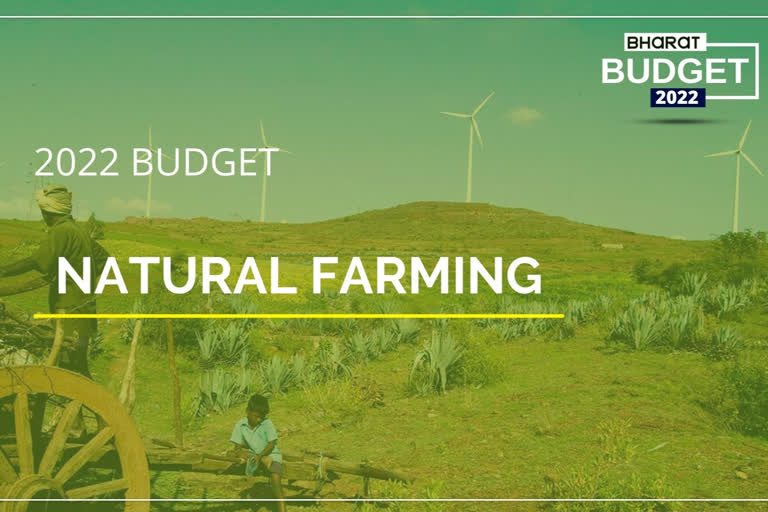New Delhi: While presenting the Budget 2022, Union Finance Minister Nirmala Sitharaman on Tuesday said that the government will promote chemical-free natural farming across the country with a focus on the river Ganga. "Chemical-free natural farming will be promoted throughout the country with a focus on farmers' land in 5 km wide corridors along the river Ganga, in the first stage," she said.
“Natural farming will benefit the country’s 80 percent farmers, who are small-scale and have less than two hectares of land, as they spend a lot on chemical input. But using natural fertilizers will benefit them with low expenditure and more profit,” PM Modi had said in December last year.
Now, after the disastrous impact of chemicals and fertilizers over the long-run has been widely studied, and disregarded by many young farmers and entrepreneurs, many are moving to natural, organic farming. Organic and chemical-free farming is an agricultural approach that advocates healthy products free from components that may harm humans and nature. They include but are not limited to industrial pesticides, insecticides, fertilizers, clones, GMOs, chemical medications, hormones, growth boosters, etc.
Nature farming uses only organic matter to enhance the vitality of the soil and enrich its inherent power. Since nature farming does not rely on commercial fertilizers, it was initially called fertilizer-free cultivation. Finance Minister may not have spoken much about this scheme in her budget speech, but if this scheme comes on the ground, then the country will have a lot to speak about it.
Not just a river, Ganga has been a part of Indian civilization forever. With a span of 2071 km across India the river has a direct connection with the 17 crore population which is 27 percent of the total population of the country. It also makes one million square kilometers of area fertile in the region. More than 5 crore population of Uttarakhand, Uttar Pradesh, Bihar, Jharkhand, and West Bengal is dependent on the Ganges, and their basis of living depends on the river. If an area of 5 km along the Ganga gets developed by making extra efforts then it will surely create crores of jobs.
Dr. Ranjit Kumar, who has written many research books on Bihar flood control, said that "if such a scheme is being made by the central government, then one thing is still not clear that what is the government's plan regarding the natural flow of Ganga. Although he agrees that if the government brings a plan to develop an area of 5 km, then surely the Ganga and people living on its bank will get a new direction.
Read: Budget 2022 revenge on farmers for leading successful movement, says Yogendra Yadav



